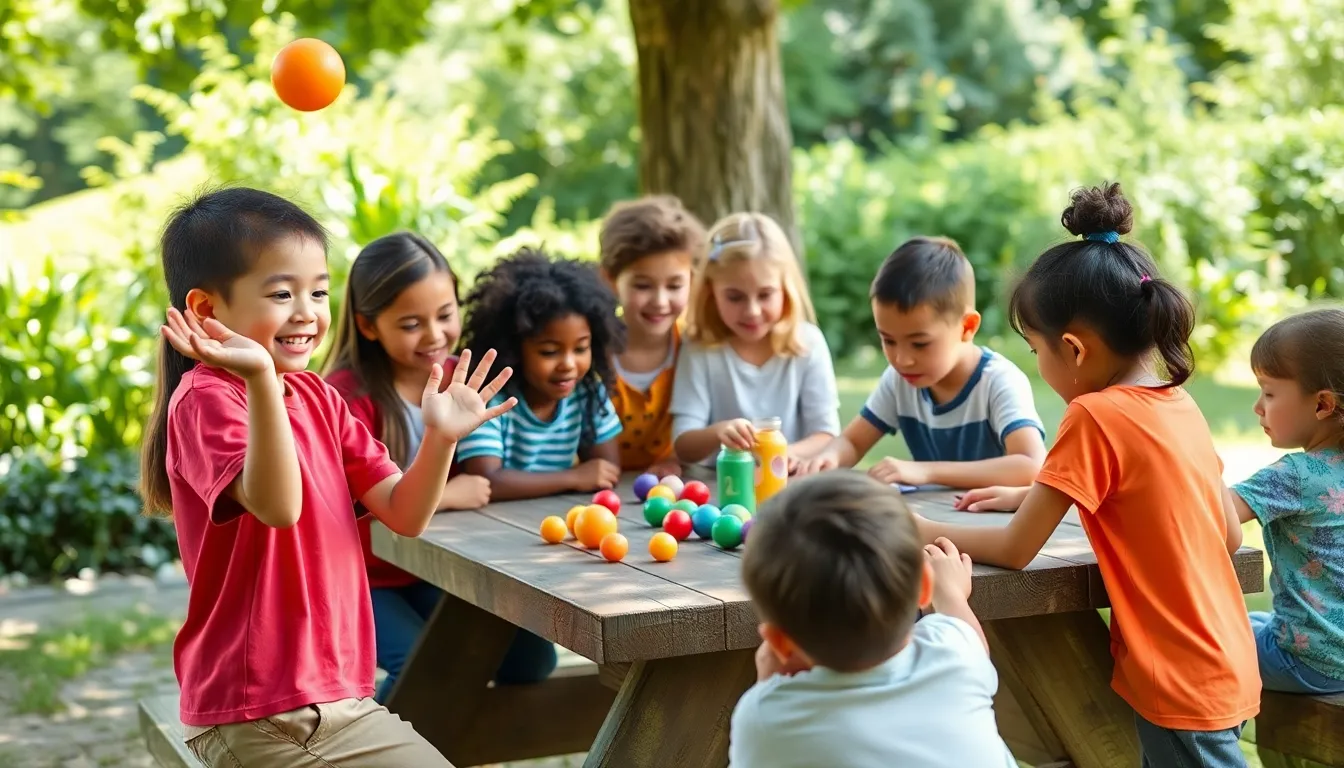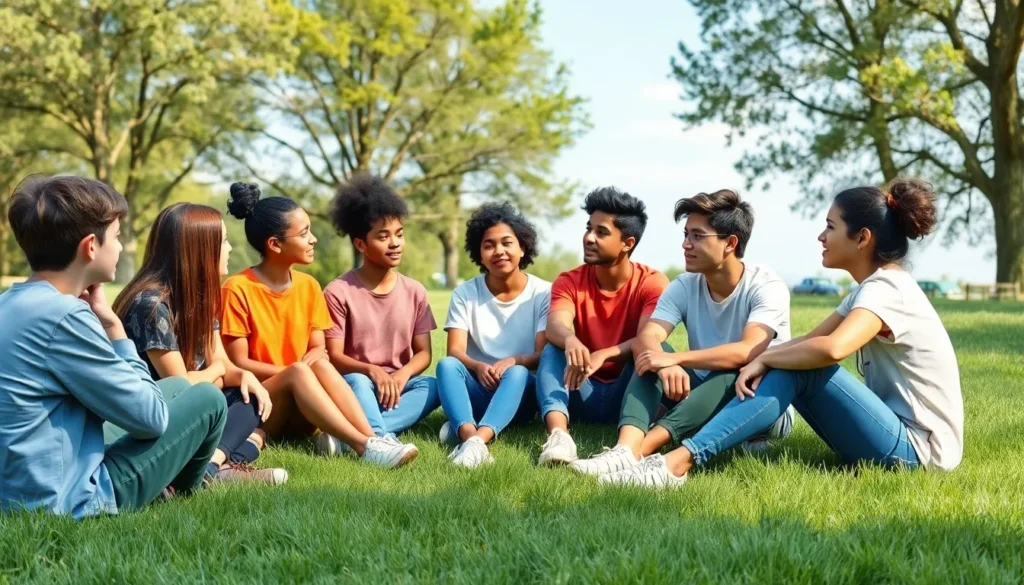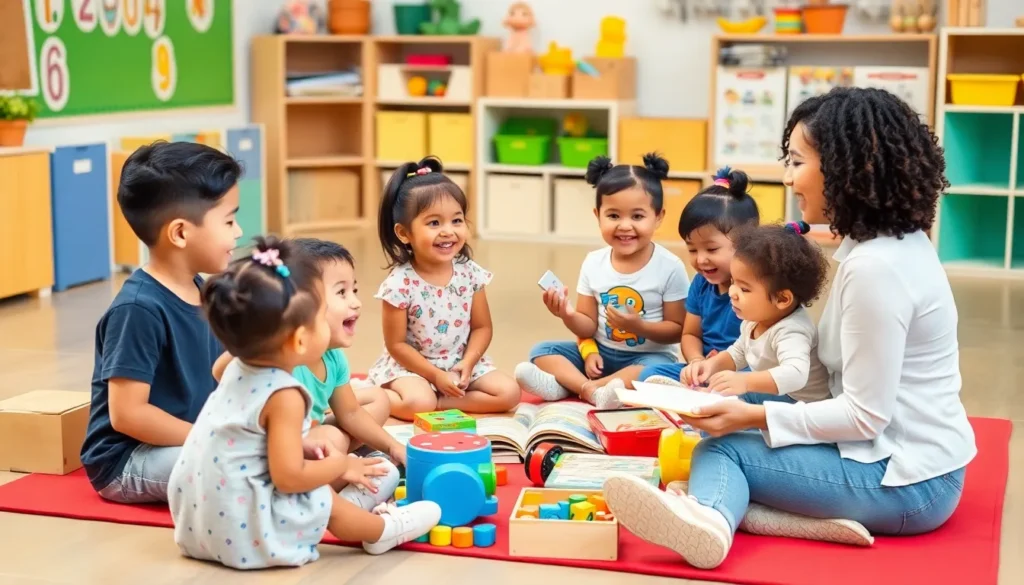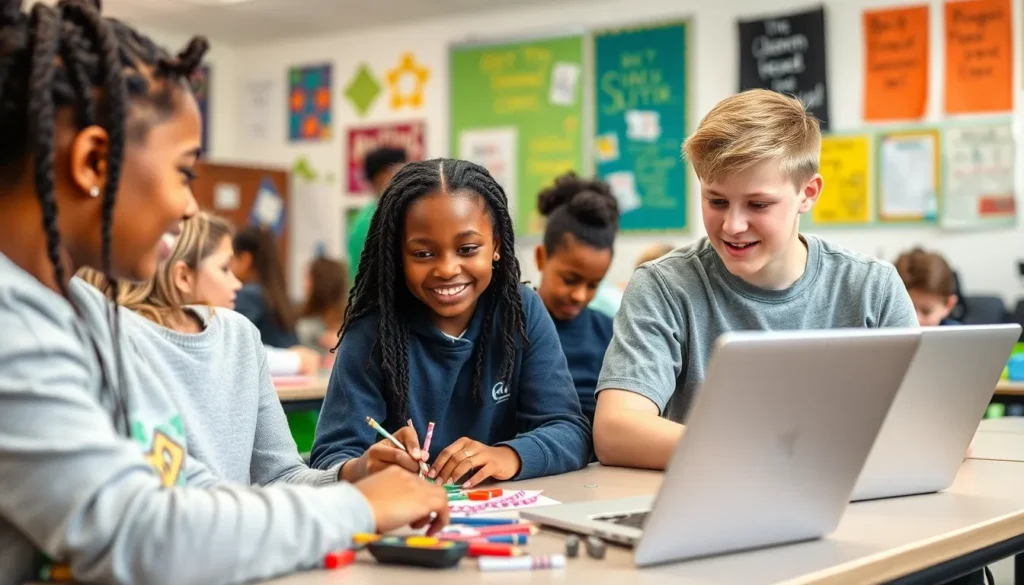Table of Contents
ToggleIn a world where traditional classrooms can feel like a never-ending cycle of boredom, alternative education offers a refreshing breath of fresh air. Imagine a place where learning isn’t just about textbooks and tests, but about exploring passions, developing skills, and maybe even mastering the art of juggling—because who wouldn’t want to impress their friends with that?
Understanding Alternative Education
Alternative education offers varied approaches to learning, breaking away from traditional formats. It prioritizes student engagement through hands-on experiences rather than reliance on textbooks and standardized tests. Programs often incorporate personal interests, allowing students to explore subjects they are passionate about. Instructors emphasize practical skills, fostering an environment where creativity thrives.
For instance, project-based learning encourages collaboration on real-world problems, enhancing critical thinking skills. Such methods not only maintain student interest but also equip them with applicable knowledge. The curriculum often includes various activities like arts, sciences, or physical education, catering to diverse learning styles.
Different models exist within alternative education, including Montessori, Waldorf, and unschooling. Montessori programs focus on child-led learning, allowing children to choose their activities. Waldorf schools emphasize a holistic approach, integrating arts into daily lessons. Unschooling permits students to learn at their own pace, promoting autonomy in their education.
Benefits of alternative education extend beyond academics. Students often develop strong social skills, emotional intelligence, and self-motivation. Environments that foster collaboration and peer learning contribute to a more rounded educational experience. When considering options, families should explore local institutions and programs that align with their educational values.
Finding an alternative education approach tailored to individual needs can pave the way for personal growth and lifelong learning. Engaging with local resources, such as community centers and educational fairs, helps identify the best fits for students. Alternative education provides a platform for unique learning journeys and prepares students for an ever-evolving world.
Types of Alternative Education
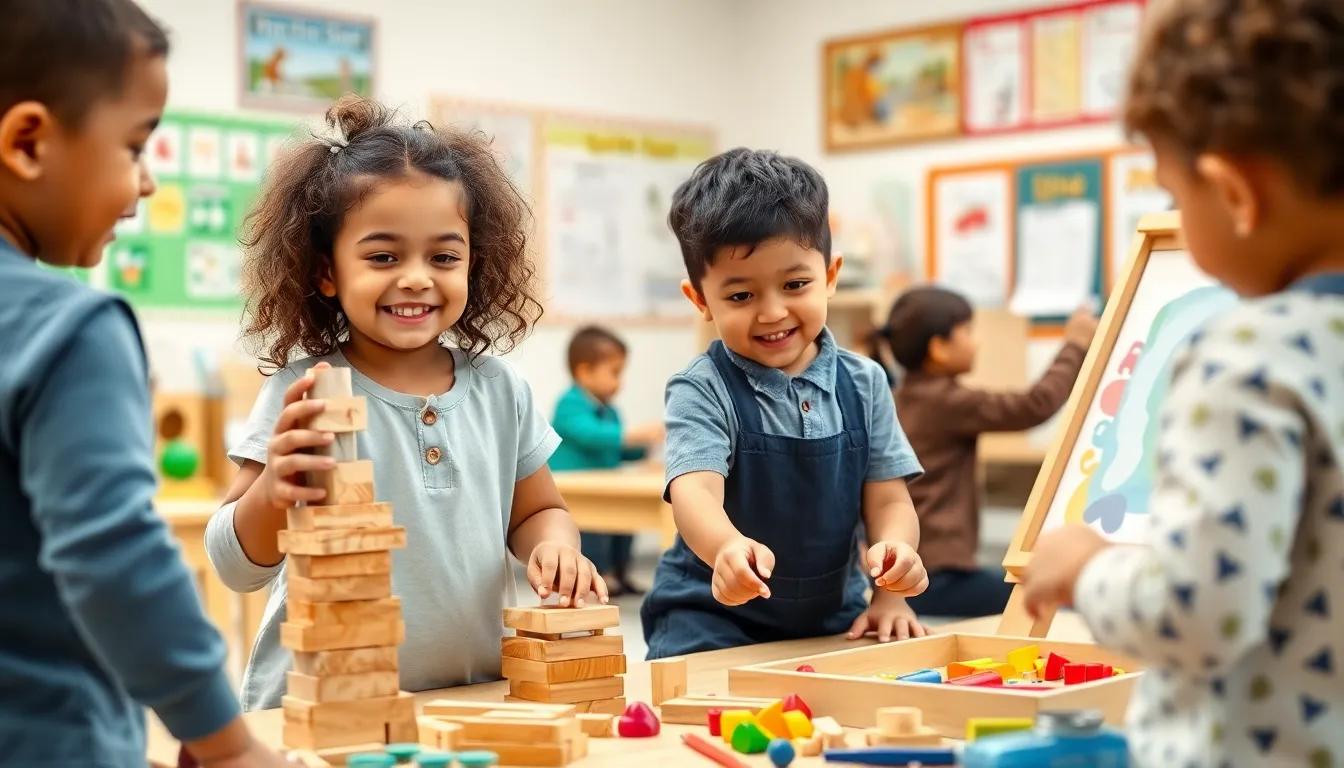
Various forms of alternative education provide unique learning experiences tailored to individual student needs and interests. These educational models foster creativity, engagement, and practical skills.
Montessori Schools
Montessori schools emphasize child-led learning where students choose their activities. They use sensory materials to develop skills in a hands-on manner. Teachers serve as guides, facilitating exploration while allowing students to work at their own pace. This approach nurtures independence and promotes critical thinking. Students engage with mixed-age classrooms, fostering collaboration and social development.
Waldorf Education
Waldorf education integrates arts and academics, creating a holistic learning environment. Daily lessons include music, crafts, and storytelling, promoting creativity and imagination. Students experience a rhythmic curriculum that aligns with their development stages. Teachers emphasize emotional and social growth while fostering a sense of community. This model cultivates lifelong learners who appreciate diverse disciplines.
Online Learning Platforms
Online learning platforms offer flexible opportunities for education outside traditional settings. They provide personalized courses that align with student interests and learning styles. Students access diverse resources from expert instructors, enabling mastery of various subjects. Many platforms also encourage peer collaboration, enhancing the learning experience. Accessible from anywhere, online education suits a wide range of schedules and commitments.
Finding Alternative Education Near Me
Exploring alternative education options near a person’s location can lead to enriching learning experiences. Numerous resources can aid in discovering suitable programs.
Researching Local Options
Online searches provide a wealth of information on alternative education programs. Utilizing websites like GreatSchools or Niche can yield local reviews and ratings for various institutions. Community forums often share personal experiences, giving insights into different learning environments. Social media groups dedicated to educational discussions also highlight local alternatives. Local educational fairs or events feature presentations from schools, making it easy to gather information in person. Engaging with local libraries will connect families to resources that outline educational programs in the area. Gathering information from multiple sources ensures an informed choice about educational paths.
Visiting Schools and Programs
Visiting schools allows families to experience environments first-hand. Touring classrooms and interacting with educators offers a glimpse into the educational approach. Observing student engagement reveals how teaching methods align with individual learning styles. Participating in open house events provides additional insights into curriculum highlights. Meeting with administrators clarifies policies and values. Engaging with current students and parents will enhance understanding of community dynamics. Assessing physical spaces ensures they suit students’ needs and interests. Immersing oneself in these experiences helps families find the best fit for their learning journey.
Benefits of Alternative Education
Alternative education enhances academic growth while nurturing social skills. It fosters creativity, allowing students to express themselves in a supportive environment. Practical experiences align learning with real-world applications, encouraging deeper understanding of subjects.
Social interaction plays a crucial role in this type of learning model. Students collaborate on projects, developing teamwork and communication skills. Classes often include outdoor activities, enriching learning through hands-on experiences.
Diverse learning styles receive attention in alternative education settings. Visual, auditory, and kinesthetic learners benefit from tailored approaches that engage their strengths. Programs incorporate various teaching methods, addressing the unique needs of each student.
Emotional intelligence flourishes within alternative education frameworks. Students learn to recognize their own emotions and those of others, building empathy and resilience. This emotional growth complements academic achievements, resulting in well-rounded individuals.
Self-motivation becomes a key component of the learning process. Students take ownership of their education by choosing subjects that interest them. This sense of agency fosters a lifelong love of learning.
Engaging with local alternative education options can further solidify these benefits. Families discover resources through community events, sharing insights and experiences. Parents also gain a clearer understanding of how alternative education aligns with their family’s learning philosophies.
Successful alternative education fosters a sense of belonging among students. Participating in a supportive community helps individuals flourish academically and socially. Overall, the blended approach nurtures personal and academic development for each student.
Exploring alternative education options nearby opens doors to unique learning experiences tailored to individual needs. Families can find programs that prioritize creativity and practical skills while fostering emotional intelligence and social growth.
By engaging with local resources and visiting schools, they can gain valuable insights into the educational philosophies that resonate with their values. This hands-on approach not only enhances academic performance but also nurtures a lifelong passion for learning.
Ultimately, alternative education provides a supportive environment where students can thrive, develop their interests, and build essential life skills for the future.

